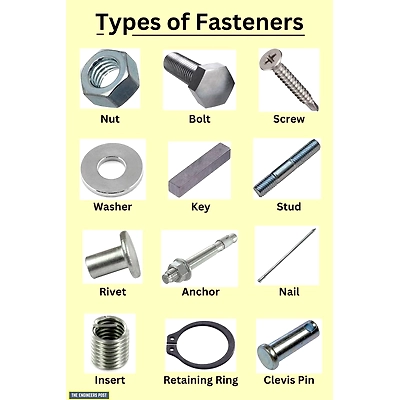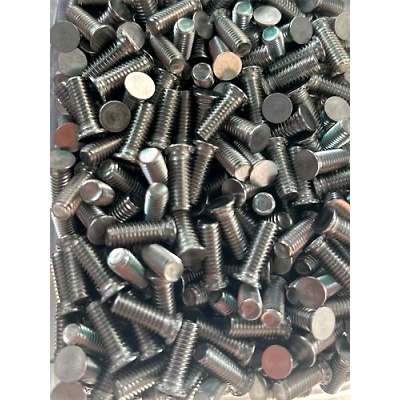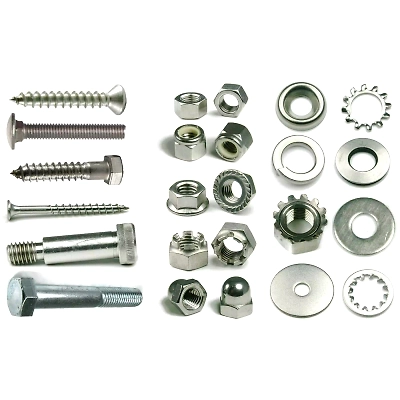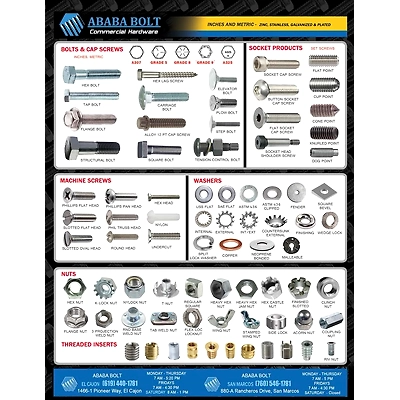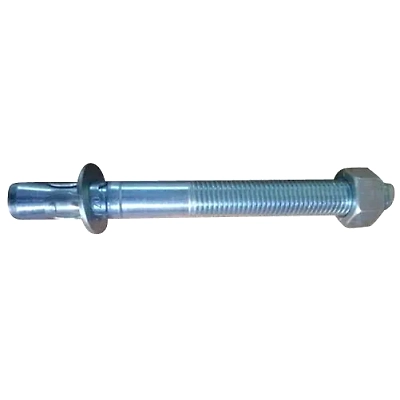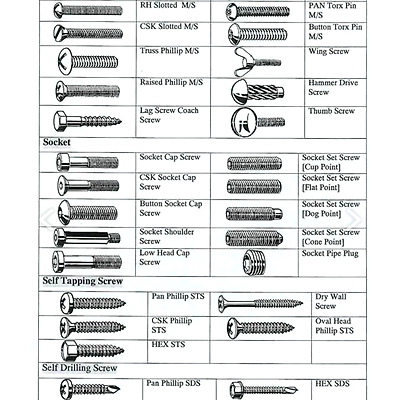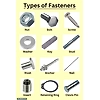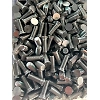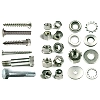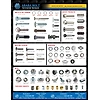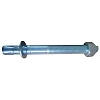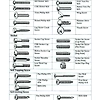Fasteners (nut , pin, bolt & washers)
-
Product is not available
Country Of Origin : India
Fasteners are hardware used to join objects, encompassing various types like screws, bolts, nuts, rivets, and anchors, each with specific applications and features for secure and reliable connections.
Here's a breakdown of common fastener types:
1. Screws:
General: Externally threaded fasteners with high durability and grip strength.
Types:
Wood Screws: Tapered head for sinking into wood.
Sheet Metal Screws: Sharper threads for connecting metal to other materials.
Machine Screws: Uniform thickness, used with nuts or tapped holes.
Socket Screws (Allen Head): Driven with a hex key.
Self-Drilling Screws: Have a point to create their own hole.
Deck Screws: Corrosion-resistant for outdoor applications.
Drywall Screws: Self-tapping head for easy installation.
Masonry Screws: Designed to cut into concrete and brick.
Sems Screws: Screws with a washer pre-attached.
2. Bolts:
General:
Partially threaded fasteners that hold two parts together, often used with nuts.
Types:
Hex Bolts: Standard bolts with a hexagonal head.
Carriage Bolts: Round head with a square neck, preventing turning.
Eye Bolts: Have a ring or loop for attaching rope or chains.
U-Bolts: Shaped like a "U" for attaching to pipes or other round objects.
Flange Bolts: Have a flange under the head for a wider bearing surface.
Socket Head Bolts: Driven with a hex key.
Double End Bolts: Have threads on both ends.
3. Nuts:
General:
Internally threaded fasteners that fit onto bolts for securing connections.
Types:
Hex Nuts: General-purpose nuts.
Castle Nuts: Have slots or holes for use with cotter pins.
Lock Nuts: Designed to prevent loosening due to vibration.
Cap Nuts: Cover the end of a bolt for a finished look.
Wing Nuts: Allow for hand-tightening.
Weld Nuts: Designed to be welded to a metal component.
Flange Nuts: Have a flange for a wider bearing surface.
Tee Nuts: Designed for wood applications, creating a threaded surface.
4. Rivets:
General: Permanent fasteners that form a joint by deforming a pin after insertion.
Types:
Pop Rivets: Inserted with a special tool.
Multi-Grip Rivets: Can grip a variety of materials.
Tri-Fold Rivets: Used in applications where a flush surface is needed.
Large Flange Rivets: Have a large flange for a wider bearing surface.
5. Washers:
General: Flat discs used with nuts and bolts to distribute load and prevent damage.
Types:
Plain Washers: Standard washers for load distribution.
Spring Washers: Create tension to prevent loosening.
Locking Washers: Have teeth or other features to prevent loosening.
Dock Washers: Have a larger diameter than standard washers.
6. Anchors:
General: Used for securing objects to concrete, masonry, or other solid materials.

